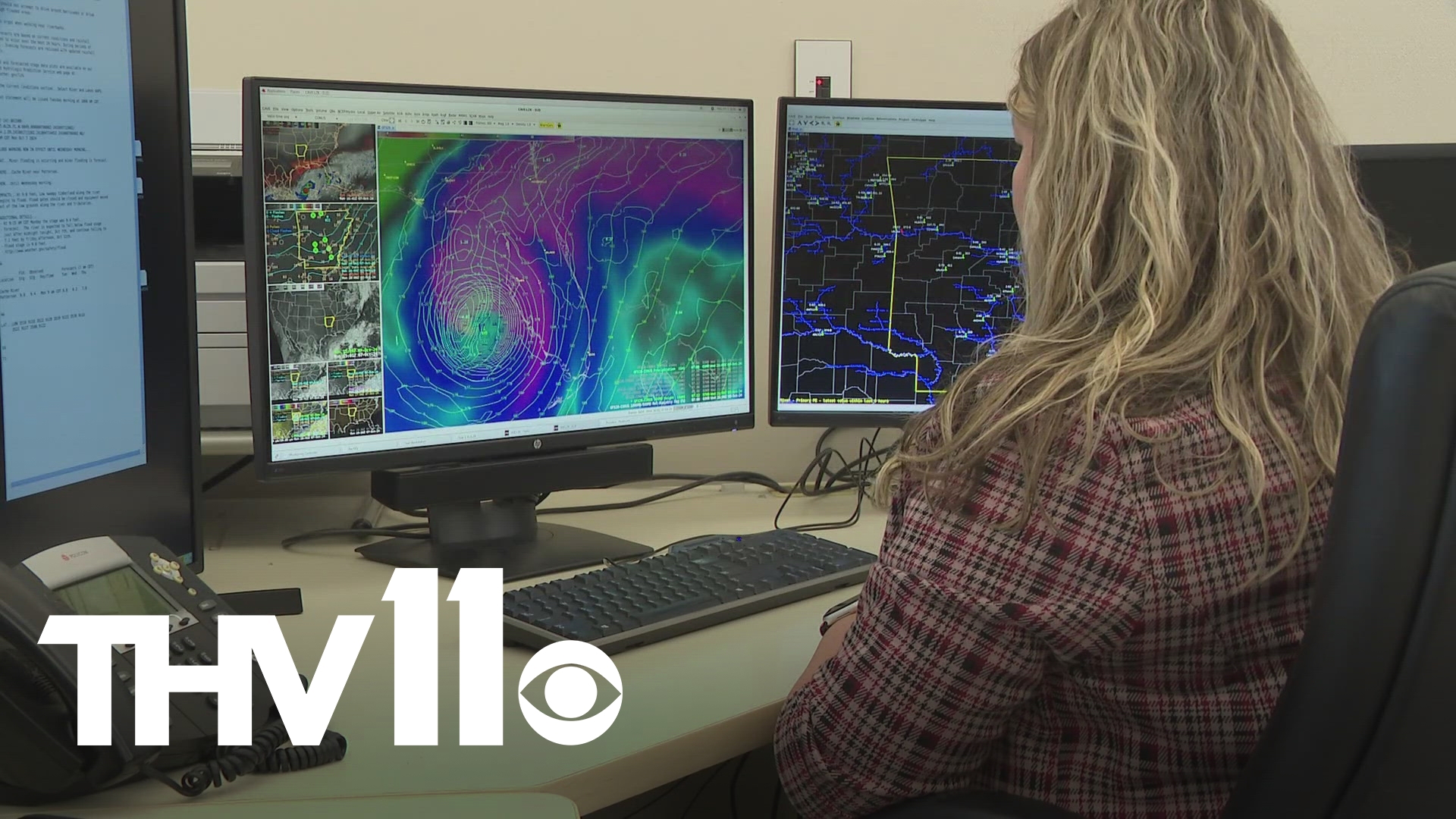LITTLE ROCK, Ark. — The Atlantic hurricane season runs for nearly half the year, far longer than most severe weather seasons. The season can sometimes start slow, but the end of summer produces some of the most impactful systems.
While Arkansas isn't a coastal state, the aftermath of storms like Helene is a reminder that we still need our own preparedness plan for June to November, just like we do from March to May.
"We've been recording tropical cyclones since the 1850s, and Arkansas specifically experiences about four to five a decade," said Tabitha Clarke, Senior Service Hydrologist for the National Weather Service in North Little Rock.
She was recently deployed to Atlanta to assist their team with Hurricane Helene. She said that while "four to five a decade" may not seem like much, the impacts can be intense.
During tropical systems, we most often experience damaging winds, spin-up tornadoes and freshwater flooding, which happens to be the deadliest impact of tropical cyclones.
Clarke said that while wind speed or storm surge are the immediate focus, the danger of flooding due to hurricanes "gets buried sometimes."
"When it moves inland and slows down, you just get rounds and rounds of rainfall," Clarke said. "And you're still getting many impacts from it, even after it makes landfall."
In the case of Hurricane Helene, communities in North Carolina saw 10 to 15 inches of rain in the days leading up to the storm. When you combine that with the additional rounds of rain that fell as it moved inland, it created the "perfect storm" for unprecedented flooding.
"Some of the more recent examples where we've had 10 plus inches of rain, one that I can remember, in my career, is in 2008 we had Gustav, and then at right after that, we had Ike, two weeks later," Clarke said.
In Arkansas, excessive rainfall associated with tropical systems can lead to flash flooding. That's why leaders with the Arkansas Division of Emergency Management emphasize the importance of always staying weather aware, so you are prepared when conditions start to deteriorate.
"We start working very early on with the National Weather Service, so they will reach out to us as soon as they identify a storm system that will have an impact in our state, and we usually get a couple of days notice before the system actually arrives," said AJ Gary, director of Arkansas Division of Emergency Management.
Gary said that you may already have a lot of the needed resources in your severe weather kit, but what are the differences needed to make it a "hurricane" kit?
"Try to keep enough supplies in your home to last you a few days. So if something happens, and your road is you're cut off from being able to travel down the road, you can at least get by for a little while," Gary said.
Gary also stressed the importance of any medical equipment or medication in case you have to go days waiting for assistance.
And when it comes to flood insurance, Gary said it could be a useful tool because it "could benefit you in some other areas that aren't a flood plain but still could possibly be damaged by water."
Lastly, Gary said that having a good line of communication set with your family, friends and other community members is another important part. After all, we're always better together.

